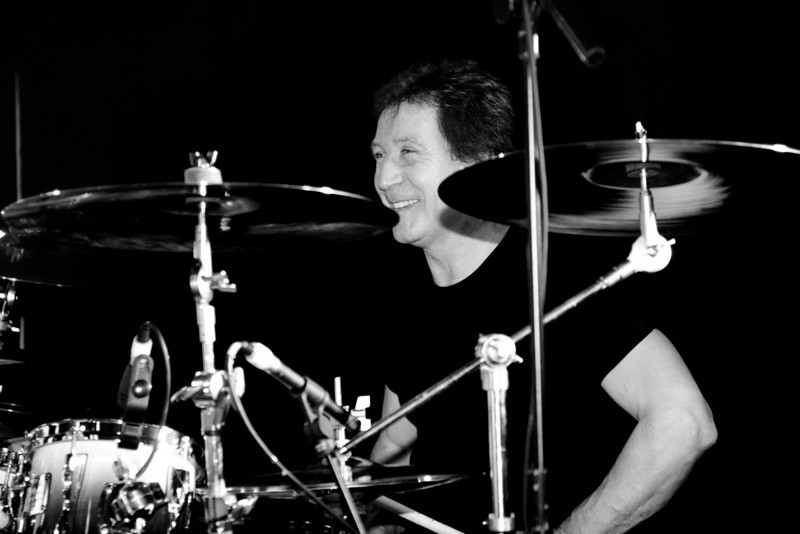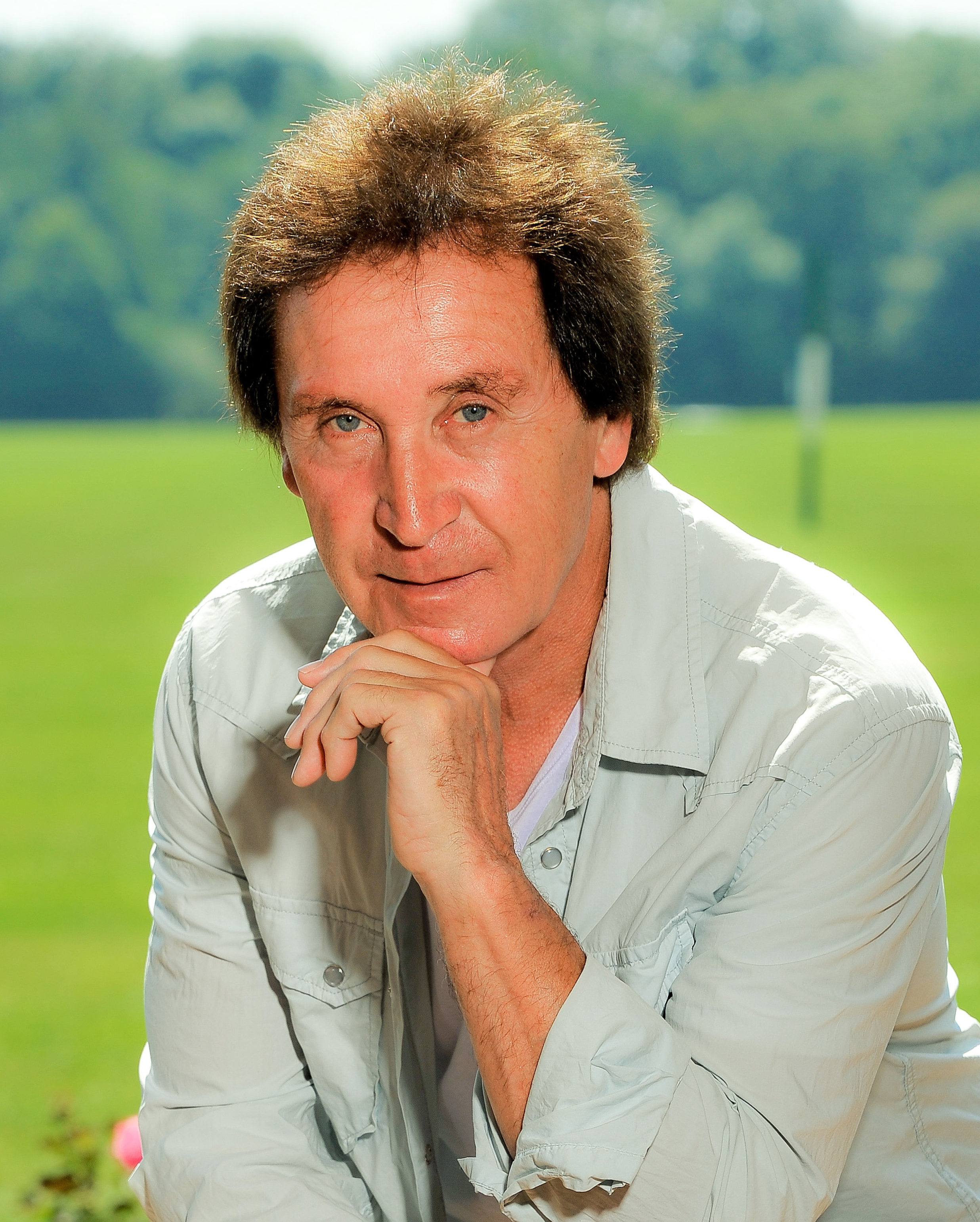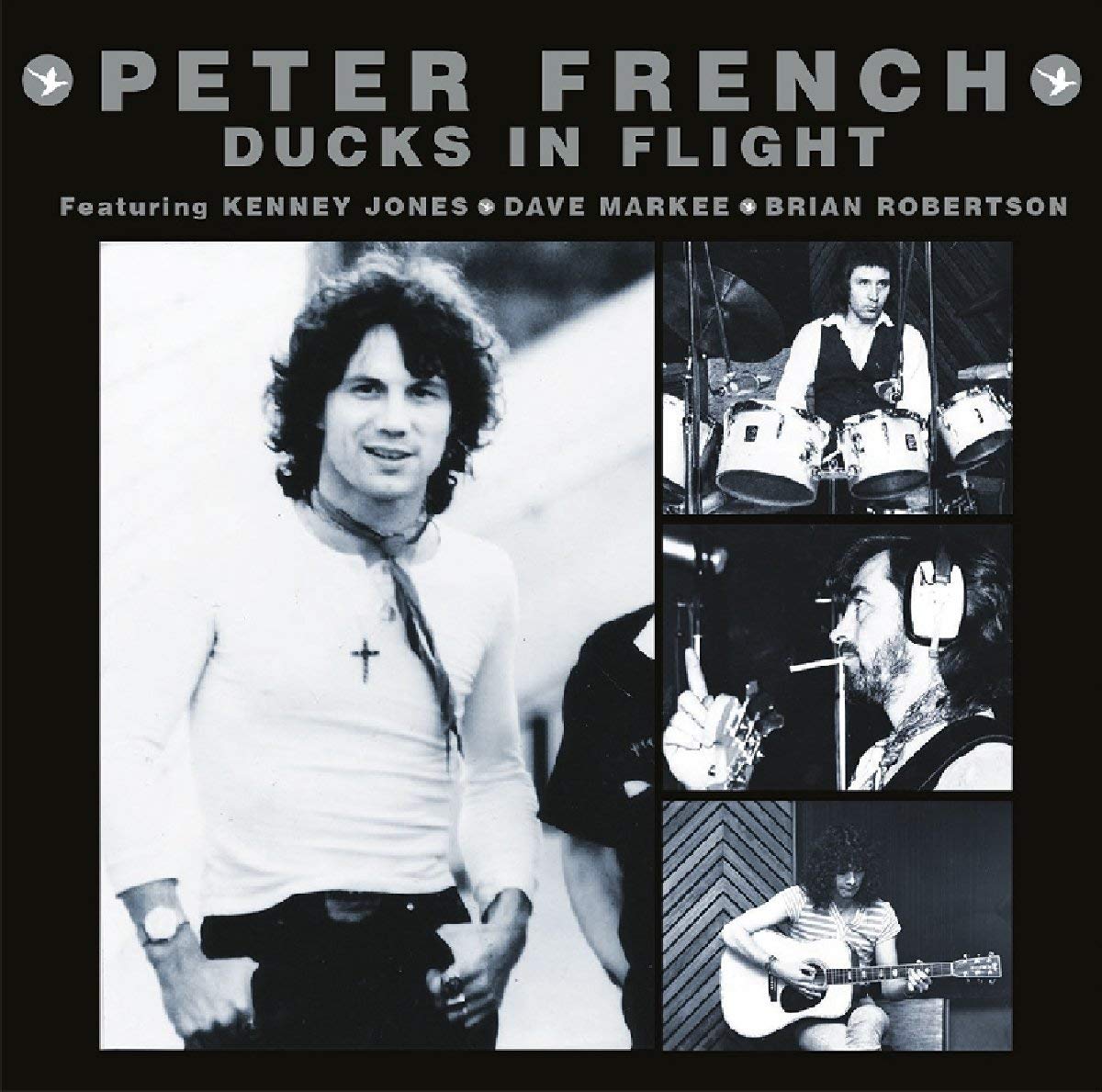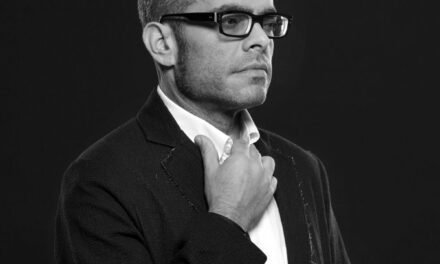Kenney Jones (Part Two)
Pete and Kenney continue their chat about his splendid autobiography Let The Good Times Roll…
I listen to the Lovin’ Spoonful and the drumming is never flashy.
No, exactly. But always part of the groove.
Would you if offered (maybe you were) played with Humble Pie?
hat is a very straightforward question. For me, I would’ve said no because basically I found arrangements over-arranged and you were just getting into the groove and then you’ve got to get out of the groove again.
Might that be because they were so eager to make an impression?
Exactly that.
That entered into the mental process.
Don’t forget Steve and all of us were stifled in The Small Faces because all we want to do is explode out of our little bubble and image that people saw about us. The business saw us as a pop band and we wanted to be recognised for our own individual musicianship.
When you make your own music, you are self-editing and you try and make music that you would like to hear.
Exactly, yeah.
I think you should. Rather than just playing to show off you should play for the song. I think that is what drew a lot of players of the era to Bob Dylan’s Band. Did you like ‘The Band’?
(Enthused) Oh yeah! Everyone loved The Band.
Why though – because they weren’t flashy?
No they weren’t. But it was simple and great stuff. They had tiny little turnarounds and bits and pieces. They were clever with deft moments.
Did Mac ever tell you – he was on tour with Bob Dylan? Bob turned up one day in this velvet double-breasted Regency type jacket and Mac said “Hi Bob, very Byronic” like Byron the poet. Bob wandered off and then about eight days later he said “Why did you say my jacket looked moronic?” and Mac said “No. Byronic like the poet!” Your stint with The Who; the tracks I love best from that era were where you were really being you I think the best is ‘Eminence Front.’
‘Cry If You Want’ and ‘Athena’. I liked ‘Athena’.
It seems to take Townshend and energise him. What was the story there?
You have to go back years to 1964 and 1965 when Pete and I became really good friends the moment we met. The Small Faces and The Who used to tour a lot together and we saw Germany,
Europe and England. But whenever we had time off, especially when Ronnie Lane lived in Richmond and Pete lived in Twickenham and I was living around the corner anyway. Pete used to say to me “Do you wanna come over and play?” So I would go over to his place which right near Eel Pie Island right on the River Thames.
I used to go and see Savoy Brown there.
We used to go up to the first floor where he had a music room and there was a fireplace there. So I used to take my eighteen-inch bass drum my smallest kit, which is a small Ludwig jazz kit and I’d stick the bass drum in the fireplace.
(Laughs)
We didn’t want to disturb anyone and make a lot of noise and the sound would go up the chimney.
Great.
I played on lots of demos with him and did a lot of writing with him. Then he used to take those demos to The Who to actually do the songs. So we go back a long way. Pete is a massive fan of The Small Faces just like we are massive fans of The Who. We were forever recording in Olympic Studios and whenever he was coming home he had to go that way so he was calling into the studios so we would see him all of the time.
But the dynamic between Roger (Daltrey) and Pete is like no other outfit anywhere is it?
No.
It is a strange thing that clearly works but it doesn’t have the same dynamic to it as even Jagger/Richards. They are obviously born to work together but it doesn’t seem to be an organic pairing. Do you know what I mean?
But it works.
————————————————————————————————————————————–
He had ducks on the wall which prompted that Pete French record you drummed on…
The title of the album yeah ‘Ducks In Flight’.
It is a great record. The best bits are as good as The Small Faces.
It gelled. It was a nice band with great players on that album.
Every now and again, I will be listening to an album by somebody else and every now and then the drummer will play a bit and they will go “Nice touch of Kenney Jones there”. They’ll know what they mean. What would prompt them to say that?
I don’t know. Basically, I think it is that I play slightly behind the beat probably. But the thing is, it is that old-fashioned saying of “If you can say it, you can play it”. It comes natural to me. Also, right from the age of fifteen/sixteen I did sessions all of the time with different people. One of the first sessions I did, was with Herbie Flowers on bass and Big Jim Sullivan. We were the rhythm section and it was an orchestra when Trident Studios first opened.
Didn’t they back Dave Berry?
They did yeah because they were on tour with us. Dave Berry used to open up for The Small Faces. Great guy.
So the sessions gave you confidence or…
They gave me an opportunity to discover myself and other forms of music. Also, what would I do in that environment and how I would do it. Especially when you are playing with an orchestra or a big band you would do these dynamic big fills and you had time to do them.
That’s a Count Basie thing.
Yeah I love all of that stuff and dynamic fills. One of the tracks I like when you asked “What is my favourite Small Faces song?” it is actually ‘If You Think You’re Groovy’. PP Arnold sang it but we all played on it. I played on it by mistake because I popped into the session and the engineer was there and PP was using her drummer. We just popped in to say hello nothing more nothing less. I hadn’t really heard the song before but I just sat into the control room and listened to it. Glen kept speaking to the drummer and telling him what to play and I felt sorry for him. So I found myself going downstairs into the studio and then he said “Why don’t you play it?” I didn’t want to because it wasn’t my gig but I had to sit down and play it. That’s how it happened.
What that boils down to and I can see the equivalent in guitar playing is – vocabulary. You’ve got a wider vocabulary to draw on.
I think so because of the experience I had with the sessions and that.
And because you are a fan of music.
Oh yeah. But you see, I am a great believer in let the song breathe. So many people try to fill up every little gap in it.
Kenney, that’s why I love Robin Trower. He gets this groove going and he is not in a hurry. But you are taken somewhere. I always know when people are trying too hard.
You can overkill. It is not what you play, it’s what you don’t play. Some people do and some people don’t.
I know guitar players who drown themselves out.
Yeah you can do. I used to love playing with Peter Frampton on sessions as well cause’ we used to play on Johnny Halliday stuff in France. I describe Pete’s playing as he played like ‘a flower opening‘ It was just so wonderful. Great player and great voice.
There are a few lost acts from that era, I used to like two outfits a lot; Creation and Fleur de Lys, I thought they didn’t get the breaks.
Andy …I used to go around to him once or twice a week when he had a flat in Kensington and he had his amp set up in the cellar and I set up my baby drumkit down there and we use to play jazz all the time. When you had a day off you never really had a day off because you just looked for an excuse to play.
The book – it is an absolute travel through your life. Mentally, especially through bouts of illness or whatever where does your strength come from to get back up again?
The thing is, I always look forward to the next adventure of my life. I think – where is this gonna take me? I’ll see what happens. I’ll never stop playing and I will try anything. Life is a road of discovery and you’ve got to get on that road. It is like the lottery, if you don’t play you are not gonna win it are you?
(Reflects) When I grew up in the East End as a kid I had lots of ups and downs with parents, family and the same expression always came out “Pick yourself up, dust yourself off and start all over again”. It doesn’t mean that life’s all over it is just beginning.
If you were in a room with the radio playing, what would you cross the room to turn UP and what would you cross the room to turn OFF?
Music I like obviously. I’d turn The Shadows up and the Punk down.
(Laughs) As you say, Punk wasn’t all bad it was just what that cross-section of the community felt like doing at the time.
It was a really critical moment for me when Punk came out because my first reaction was “Why? Why spit on everybody?” But then I realised that you had some good Punk bands and some bad ones. I didn’t really wanna go into it and I was glad when it found its level, got its own little place and got better.
Yeah. It was supposed to happen.
The weird think with Punk is that it never really stayed Punk. Even the Punk players discovered something else like Glen Matlock.
I love Glen! I met him last year and I thought “How is an old Psychedelic guitarist going to get on with him?” What a lovely guy. The best rock record released last year was his solo album with Earl Slick.
That’s right. He’s a lovely guy as well.
He covered a Scott Walker song on the new record. It really is a great set and I never thought I could relate to him but I think two minutes in he realised what I was letting him express and the chat flowed. In his own way, he is quite a sophisticated character. One thing I forgot to ask you, how did you get on with John Entwistle?
Great. John and I we toured together (The Small Faces and The Who) and he was one of the first guys I got to know in The Who. Not because of the gigs we were doing together but because outside when we weren’t doing it I was doing sessions as was John. So we were always booked on the same session so we had such great fun together. John was kind of deaf, as I’m getting older I understand what he means now, so I learnt to lip-read a little bit. I was one of the few people who understood what John was talking about! I had great fun with him because he would drink red wine and I would drink brandy and Coke or whatever.
He was quite a flamboyant bloke wasn’t he? Even with instruments.
John could never buy one of something. He used to go and buy lighters because he smoked a lot and he’d get those throw away lighters and buy a whole box! I said “John, you don’t need all of them!” and he’d go “No it’s alright I’m gonna run out – I lose them”. Then if he liked a shirt or a jacket, he’d buy six of them and it went on like that. Down in his house, he had a bar there with quite a high ceiling and he used to go deep sea fishing. He had sharks and had them stuffed and put on the wall. He had a lamp and around the lamp he had little baby sharks and I said “How did that come about?” He replied “Well we caught a shark and it was pregnant so we had them stuffed as well”. So funny.
I never really played with a bass player in The Who. I sat in the middle of two great lead guitarists one was on bass and the other one was top.
On ‘The Kids Are Alright’ album, there is a track on there that starts flowing and it does sound like Cream. It hits the groove but it does go into this thing where ‘how can these elements resolve back to the riff?’ And they do. The art of jamming.
I’m a big fan of jamming because you find something in there. It is funny because I’ve noticed a few English singers sing American and a few American singers sing English. It is weird. David Essex is a good friend of mine and has been for years and years but he sings English.
When I sing ZZ Top songs I have to sing it in my English voice.
Do you sing a lot of blues stuff?
No I sing everything. I’ll sing some Frank Sinatra stuff like ‘That’s Life’ which I will sing in an English voice because immediately you are not phrasing or trying to be like them. I sound more authentic singing it in my voice.
Well you would do.
I can’t escape the American guitar sound because of what I am influenced by. Why would?
I love country music because I love the drumming. It has a swing to it
Marty Stuart has a band called The Fabulous Superlatives and they are all lead singers and when they all sing together it is glorious. One of my things is the electric twelve-string.
I love the sound of twelve-string guitar.
What two tips would you give to someone starting out and playing drums now?
Never give up. Practice, practice, practice and most of all enjoy what you’re doing. All drummers should really have discovered themselves and the reason I say that is because you need to find your own style. I’m lucky because I never had a lesson in my life and I taught myself just playing along to records. Once you find that style it comes naturally to you and you know your place.
The other thing that people say to me, “It must be nice to play drums because you can take all your anger out on them” and I say to them “If I am angry or upset in any way – I don’t mind being upset and playing, but if I am angry I will not go anywhere near my instrument.
That’s strange.
I play my drumkit for happiness, peace and pleasure. Do not take it out on your drums, play your drums. As a musician, I’m very proud to still be able to say I play an acoustic instrument. Never got into electric drums because they don’t sound right, they don’t play right.
One record where that connects with me and it is called ‘There’s A Riot Going on’ by Sly and The Family Stone. Auto beats and acoustic blending.
Oh right. I like Phil Collins stuff and the way he uses electro percussion and I did a lot of sessions with click-tracks and things. For me, the sound of a drum… that’s why I love Glyn Johns as an engineer because he captures my sound beautifully and lets my drum breathe.
I met Ethan Johns last year in Guildford and he has put some new material out. He has inherited those sharp listening skills. Who is the book for?
I think it is really for the fans and for my family as well because when I was asked to write a book in the first place I sat down and got quite excited in the 1980s. I started to make a few notes and I thought “Hold on a minute. It is an autobiography and I am not even thirty years old.” It would not have been as emotional as this book is now. I wanted to put a lot of me into it. A lot of people say “It is all about the music” and I go “No it is not all about the music. It is about me. If I am going to write a book and it is an autobiography it has to be about me and my journey”.
This is a journey isn’t?
It is a journey. This is not ‘in the right place at the right time’ this is pure fate. I was meant to meet Ronnie (Lane), I was meant to meet Steve (Marriott) we were meant to be what we are.
What turned me on is that I am a big fan of Miles Davis. Unless you have read his autobiography you don’t really understand what it was like for a black guy in music coming through in the Fifties, Sixties and Seventies. The fact that he did. A lot of Miles Davis fans hated the fact that he wanted to do different stuff.
A lot fans kept asking what happened between the bands and why did you fall out. This is not a junkyard book. I’m just gonna tell the truth and if you wanna know what happened this is what happened. I tried to indirectly put two sides to everything.
They weren’t in your shoes and making the decisions you did. Thank you for the chat mate.
That’s alright no problem. Thanks for making time, it’s appreciated
Pete Sargeant
Thanks go to Kenney and his family, for all help and input plus images supply)
You can read our Kenney Jones (Part One) interview here: http://bit.ly/2tYZS9t
Kenney Jones’ autobiography ‘Let The Good Times Roll’ is out now and published by Blink Publishing.
It is available from bookshops and retailers.
You can also purchase the book here: https://amzn.to/2XPt5S3
You can also follow Kenney Jones on Twitter here: http://bit.ly/2EQoyGh










